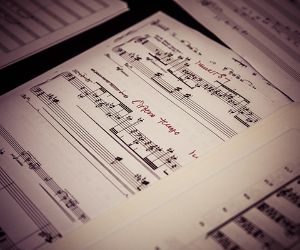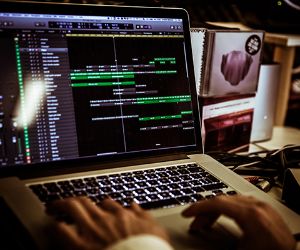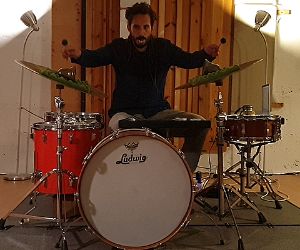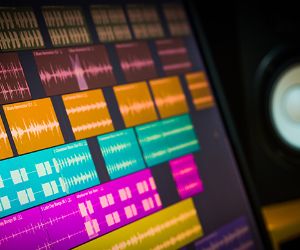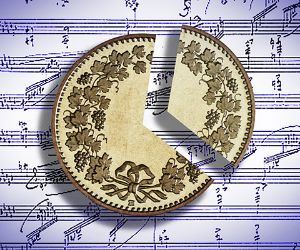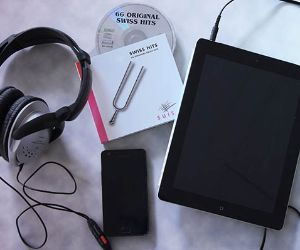Law & guidance
A wealth of tips, explanatory notes, advice and guidance on copyright law, SUISA membership, the music business and many other topical themes.
This section contains the collected articles from the “Gut zu wissen” (“good to know”) advice column of SUISAinfo, our magazine for members. The collection is continuously supplemented from the latest issues of SUISAinfo.
- The contributions under the legal tips column are primarily concerned with legal issues.
- The advice and guidance section offers guidance and background information on a variety of topics.
SUISAinfo articles are available in German, French or Italian and only sometimes in English.
Answers to the most frequently asked questions about copyright.
General principles of music copyright law
-
The Federal Act of 9 October 1992 on Copyrights and Related Rights (CopA) regulates copyright law. This Act is the legal basis for SUISA’s activities. The CopA specifies what rights natural or legal persons – for example:
- Authors (composers, lyricists, etc.)
- Performers (musicians who perform the works)
- Sound recording producers (e.g. recording companies)
- Broadcasting companies (e.g radio or TV broadcasters)
have in their works and services. Moreover, the CopA stipulates the obligations of the collective management organisations.
The law also defines important terms such as “work” and “author”. Furthermore, it determines what rights authors have in their work – and places limits on this protection (known as copyright restrictions, e.g. for private use).
As a rule:
The author of a work is its owner. This means that others may only use this work – i.e. the work may only be published, reproduced, performed in public, broadcast or otherwise disseminated – with the author’s explicit consent. The author may request remuneration in exchange. -
The Copyright Act protects all musical works having an own recognisable character and which are created by individuals. Apart from music, other acoustic works of an original nature, characterised by the use of sounds instead of melodies and notes, are protected.
All these works are protected regardless how complex or well-known they are. A major symphony and a short commercial radio jingle enjoy equal protection under the Copyright Act.
SUISA is the collective management organisation in charge of managing copyrights for non-theatrical music. The latter are also known as "small rights". Small rights include:
- Music without scenic representation, with or without lyrics (e.g. pop songs, instrumental pieces, oratorios)
- Concert versions of music from plays or operas
- Music for dance performances, if used without actual dance
- Excerpts from theatrical musical works which do not comprise a complete act and are:
_not longer than 25 minutes in the case of a radio broadcast, or
_not longer than 15 minutes in the case of a television broadcast. - Music used in films, videos or other audiovisual media (except for complete filmed operas or musicals).
SUISA handles various rights of use, including:- the right to public performance (e.g. at concerts),
- the right to broadcast and retransmit (e.g. on radio or television),
- the right to public reception (e.g. in hotels or restaurants),
- online rights (e.g. for streaming or downloads),
- the reproduction right (e.g. for CDs, DVDs or audio files) and
- remuneration for blank media (e.g. external hard drives or memory in smartphones) and for the rental of music media such as CDs or media for audiovisual works such as DVDs.
-
The difference between small and grand rights lies in the type of musical works involved and in the jurisdiction of the relevant organisations:
"Small rights" are non-theatrical musical works and are in SUISA’s remit. These include, for example, music works used in concerts, on the radio or on sound recordings.
"Grand rights" relate to dramatic musical works such as operas, operettas, musicals and certain types of ballet. These rights are managed by the Swiss Society of Authors (SSA) or by the publishers directly.
The distinction regularly gives rise to debate, because the criteria are not always clear and must be interpreted on a case-by-case basis.
-
If your composition is being used without permission, you must first secure evidence of authorship and unauthorised use. According to SUISA, works are automatically protected by copyright from the moment they are created.
To be able to prove authorship and the date of creation in the event of a dispute, SUISA recommends two measures:
1. Register the work with SUISA (for members).
2. Self-addressed and registered mail: send yourself a sound recording or the score of the work by registered mail. This envelope should remain sealed to serve as evidence.
These measures are not necessary to ensure protection, but they do make it easier to provide evidence in the event of a dispute. If you already have evidence, you can take legal action or contact SUISA for assistance.
-
A list of reference books on the subject of copyright and musicians' rights is published on our website under "Copyright in music"
Protection of band names
-
Band names can be registered as trademarks if all the legal prerequisites are satisfied. To register a trademark you must file an application with the trademark register of the Federal Intellectual Property Institute (IPI): https://www.ige.ch/en/protecting-your-ip/trade-marks/national-applications.
SUISA is not a party to the application and has nothing to do with this registration.
The name of an artist or a band may be protected by law even if it is not registered as a trademark. The following legal bases apply:
- general rules of the Civil Code for the protection of names,
- Federal Act on Unfair Competition.
This legal protection is not, however, very clearly defined, and the scope of such protection needs to be verified on a case-by-case basis.
-
Registering a band name as a trademark has several advantages:
- in the event of a dispute, it makes it easier to prove who was first to adopt the name
- it prevents new bands from choosing the same name, since checking will show that it is already taken
- the scope of protection is clearly limited to certain classes of goods or services (such as advertising or entertainment).
But trademark registration also has disadvantages:
- it costs between CHF 350 and CHF 450 at least, for ten years.
- Trademark protection is only valid in Switzerland. Protecting the name abroad as well is complicated – the trademark must be registered there at additional cost.
- Filing a registration is complicated and requires specialised legal knowledge. It makes sense to hire a trademark lawyer – this will add to the cost.
Since, even without trademark registration, names may be protected under the Civil Code and the Unfair Competition Act, the need for trademark registration should be considered on a case-by-case basis.
-
Trademark registration has two advantages:
- It gives the band the exclusive right to use its name.
- The band can take legal action against anyone who uses the same name or one that sounds the same.
But there are three limitations:
- Trademark protection is restricted to ten years. After which it can be renewed for a further ten years: currently this costs CHF 550.
- The protection is only valid for three classes of goods or services, for example advertising, entertainment and musical instruments. If you wish to protect your band name for additional classes of goods or services, you can apply separately, for a fee.
If anybody can prove that they were already using a similar trademark before the band name was registered, they may continue to use it. As owner of the trademark, you cannot prevent them from doing so.
-
To file a national registration for a band name with the Federal Intellectual Property Institute (IPI) currently costs 350 (for electronic filing) or 450 Swiss francs.
This protects the band name for ten years in Switzerland in three classes: advertising, entertainment and music instruments.
For further information, see the fee schedule of the Federal Intellectual Property Institute.



